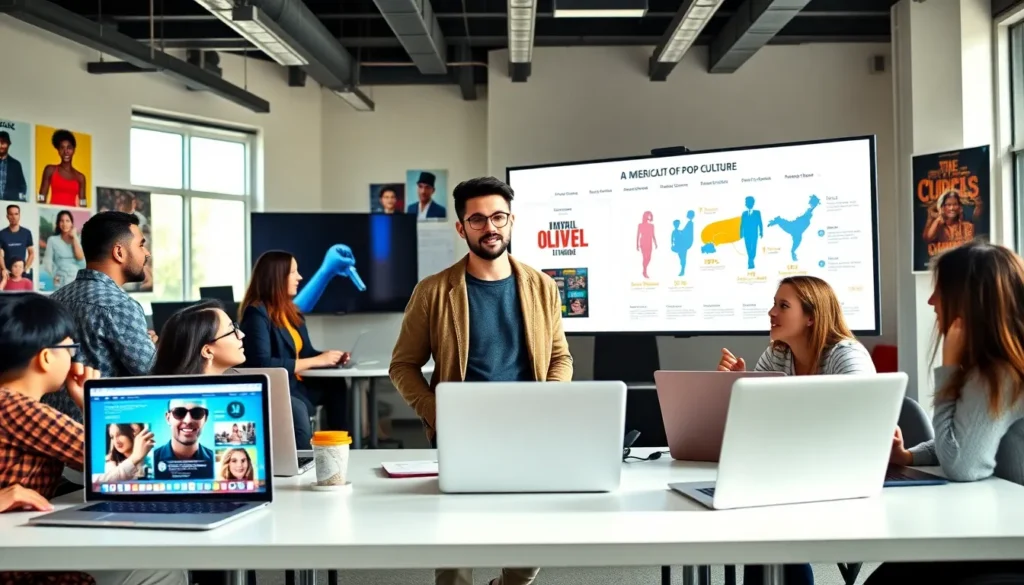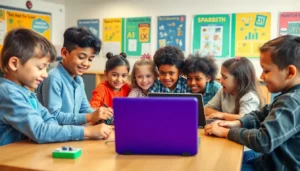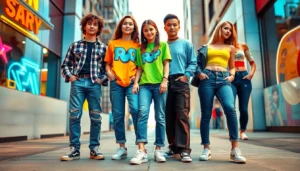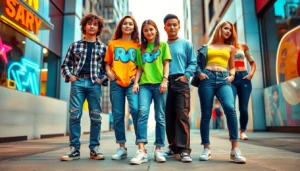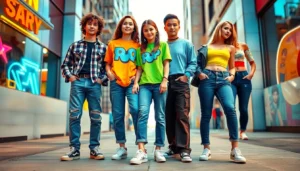Table of Contents
TogglePop culture isn’t just what the cool kids are talking about: it shapes our world, influences us daily, and sometimes, makes us wonder why that catchy song is stuck in our heads. From viral TikTok dances to blockbuster movies that redefine genres, pop culture zips forward at the speed of light. It reaches into our lives, sometimes making us laugh, other times making us cringe. So, why is it crucial to keep up with the latest pop culture topics? Because being in the know can be as important as knowing when to strike up a conversation about that bizarre meme your friend sent you. Let’s jump into the evolution of pop culture, unpack its key influencers, and explore how social media twists the narrative in ways we never expected.
The Evolution of Pop Culture
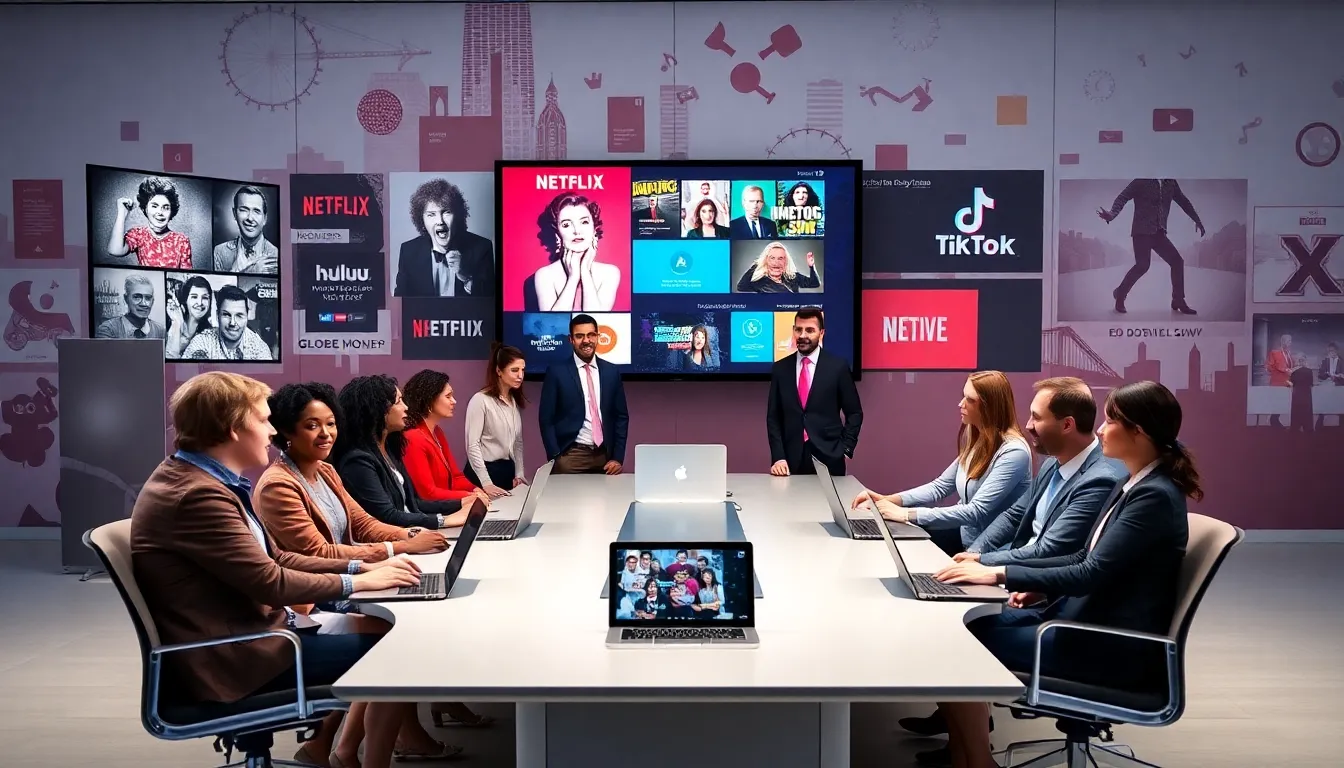
Pop culture isn’t static: it evolves continually, reflecting societal changes and technological advancements. In the early days, culture spread primarily through radio, television, and print media. Shows like I Love Lucy and The Ed Sullivan Show dominated the airwaves, capturing a generation’s imagination. Fast forward to today, and streaming platforms such as Netflix and Hulu have transformed how audiences consume entertainment. Movies and series are no longer confined to primetime slots: binge-watching has become the norm.
Also, the rise of online platforms has made pop culture not just a top-down phenomenon but also bottom-up. Everyone is now a potential influencer, and trends can emerge from anywhere, sometimes overnight. TikTok dances sweep the nation in days, and viral trends spread like wildfire, reminding us how quickly pop culture can shift. This dynamic landscape makes it all the more important to stay informed.
Key Influencers in Modern Pop Culture
When discussing influential figures in pop culture, a few names inevitably come to mind. Celebrities like Beyoncé and Drake don’t just produce music: they shape entire cultural narratives. Their fashion choices, public statements, and engagement with social issues resonate widely, showcasing the power of celebrity in influencing societal trends.
Also, platforms like Instagram and TikTok have birthed a new breed of influencers, with personalities emerging from the depths of the internet. These social media stars ignite trends, promote products, and, in many cases, have more sway than traditional celebrities. For instance, a product review from a popular YouTuber can lead to a sales boost overnight, a feat that traditional advertising struggles to accomplish.
Keep in mind, influencers come from diverse backgrounds, adding layers to the pop culture conversation. Each brings unique perspectives that reflect broader societal issues and dynamics.
The Impact of Social Media on Pop Culture
Social media has transformed all aspects of life, but its role in shaping pop culture is particularly profound. Platforms like Twitter and TikTok allow trends to arise organically, often reflecting societal moods and sentiments. A meme that encapsulates the frustrations of a generation can spread like wildfire, evolving as it is shared.
Besides, the immediacy of social media allows real-time responses to cultural events. When something noteworthy happens, the world reacts simultaneously, creating a collective cultural moment. This shared experience can amplify the effects of pop culture phenomena.
Plus, social media has democratized content creation. Anyone with a smartphone and an internet connection can engage in the conversation, challenging existing norms and presenting alternative viewpoints. This disruption has led to a more inclusive environment, where diverse voices contribute to ongoing cultural dialogues.
Trends in Entertainment and Media
Entertainment has seen seismic shifts in recent years due to technological innovations. The rise of streaming services has shifted focus from traditional cable to on-demand content. Viewers now expect convenience and choice, reshaping how media is produced and consumed.
Also, genres that were once considered niche have gained immense popularity. Consider the meteoric rise of eSports, which has transformed competitive gaming into a global spectacle with millions of fans tuning in. Even podcasts have surged, offering insights on myriad topics, often blurring the lines between entertainment and education.
Also, interactive content has begun to take center stage. Platforms like Twitch allow viewers to engage with content creators in real-time, fostering a unique relationship between fans and influencers. This trend often leads to richer community environments that encourage participation.
Diversity and Representation in Pop Culture
In recent years, there has been a noticeable push for diversity in pop culture. Historically, many cultural narratives lacked representation from various communities. Today, but, creators are more attuned to the need for authentic representation in television, film, and music.
Shows like Pose highlight LGBTQIA+ experiences, while films such as Black Panther showcase the importance of Black stories in a superhero-dominated genre. This shift is not merely a trend but a necessary evolution in understanding that diverse perspectives enrich storytelling.
Also, diverse representation in pop culture can lead to societal changes. When people see themselves reflected in media, it fosters a sense of belonging and acceptance. This awareness can influence societal norms, reducing stigma and promoting inclusivity.
Globalization of Pop Culture
In our interconnected world, pop culture no longer adheres to borders. What was once particularly local has become global, with trends traveling across continents at lightning speed. Korean pop music, or K-Pop, is a prime example. Artists like BTS and BLACKPINK have not only topped charts in their home country but have also captivated audiences worldwide, showcasing the global appetite for diverse musical styles.
This exchange enriches local cultures as well. International films, foods, and fashion trends vie for attention, creating a beautiful tapestry of influences that mirror a global society. Streaming platforms allow users from around the world to access content, breaking down barriers and fostering shared experiences.
Even though these positive changes, the effect of cultural imperialism cannot be ignored, where dominant cultures may overshadow local traditions. It’s crucial to recognize that globalization is complex, bringing both opportunities and challenges.

